Domestic & Intimate Partner Violence – Katelyn Baxter-Musser (Digital Seminar)
$219 Original price was: $219.$59Current price is: $59.
Shopping Instructions:
- DISCOUNT 15% : SHOP15
- Product Delivery: Within 1 – 12 hours after purchase.
Domestic & Intimate Partner Violence – Katelyn Baxter-Musser (Digital Seminar)
Sale Page : -/-
Description:
All clinicians are likely to encounter Domestic and Intimate Partner Violence at some point in their practice. And if you fail to recognize the abuse and properly respond, the consequences can be dire.
But abuse can be difficult to detect when the physical signs of violence fade. And now more than ever, you’re conducting video sessions, giving you a unique glimpse into clients homes and potential abuse. It’s a complicated situation that can leave you caught between confidentiality, autonomy, and your wider responsibilities to protect victims.
What clinical decisions should you make to balance supporting your client while adhering to your licensure requirements?
Katelyn Baxter-Musser, LCSW has provided behavioral health counseling, crisis intervention and support to families and individuals facing domestic violence and abuse for over a decade.
Watch her in this one-day training that will serve as an indispensable guide for improving outcomes for those impacted by domestic and intimate partner violence. Not only will she answer your most pressing questions, you’ll walk away with:
- Screening tools to assess for safety, risk and lethality
- Checklists and advocacy resources
- Documentation and confidentiality strategies
- Guidance on crisis intervention and safety planning
- Culturally competent responses to abuse
- Trauma-informed interventions for clients exposed to domestic violence
- Tips for handling complex domestic violence situations created by COVID-19 and video sessions
Plus, Katelyn will share 3 powerful techniques to help you manage the burnout and compassion fatigue that can weigh you down when working with these emotionally draining cases!
Whether you’re a social worker, counselor, psychologist, marriage and family therapist, nurse, or anyone in the helping professions, this is one program you can’t afford to miss.
Purchase today!
Outline:
Domestic and Intimate Partner Violence 101
- Myths about domestic and intimate partner violence
- Defining Abuse: Types of domestic violence
- Who is at risk?
- Warning signs and symptoms
- Substance abuse and domestic violence
- Abuse in the LGBTQ Community
- COVID-19 and impact on DV/IPV
Recognize the Red Flags of Violence: What All Clinicians Need to Know
- Screening and assessment techniques
- Identify immediate danger
- Tools to assess for safety, risk and lethality
- Checklists and advocacy resources
- Technology and domestic/intimate partner violence
Reporting Requirements and Documentation Guidelines
- Privacy and confidentiality
- Who is required to report and when?
- Standards for making a report
- Domestic violence hotlines
- Proper documentation and confidentiality strategies
The Next Steps: Crisis Intervention & Safety Planning
- Barriers to leaving
- Safety plans while living with abusive partners
- Safety planning for children
- Emotional safety planning
- Plans for leaving and after leaving
- Restraining orders/protective orders
Culturally Competent Responses to Abuse
- Recognizing your own biases
- How survivors interpret domestic violence in their culture
- Adapting danger assessments for underserved populations
- What is victim blaming and how to avoid it
Trauma Informed Interventions: Transition Clients from Surviving to Thriving
- Assess for PTSD, anxiety, trauma and other mental health issues
- Understand the multilayered impact of DV/IPV
- Processing shame, anger and guilt
- Working with children exposed to domestic violence
- Research, limitations and treatment risks
Vicarious Trauma & The Clinician
- What is compassion fatigue
- Recognizing signs of burnout
- Self-care techniques for the professional
NLP online course
So what is NLP?
NLP stands for Neuro-Linguistic Programming. Neuro refers to your neurology;
Linguistic refers to language; programming refers to how that neural language functions.
In other words, learning NLP is like learning the language of your own mind!
NLP is the study of excellent communication–both with yourself, and with others.
It was developed by modeling excellent communicators and therapists who got results with their clients.
NLP is a set of tools and techniques, but it is so much more than that.
It is an attitude and a methodology of knowing how to achieve your goals and get results
Katelyn Baxter-Musser, LCSW, CDBT, is a Licensed Clinical Social Worker in private practice in Maine where her areas of expertise include domestic violence, abuse, trauma, PTSD, depression, anxiety, grief and relationship issues.
Her clinical experience includes working for 10 years in various roles as a case manager, child and family therapist, and trauma therapist for several agencies and Native American reservations. Ms. Baxter-Musser served as the trauma healing services clinical coordinator for La Frontera Arizona, a non-profit organization dedicated to providing behavioral health counseling, crisis intervention and support to families and individuals facing domestic violence, abuse, hate crimes and other issues.
Ms. Baxter-Musser is trained in Dialectical Behavioral Therapy, Cognitive Behavioral Therapy and is a Certified EMDR therapist. She is a member of the National Association of Social Workers, the American Academy of Experts in Traumatic Stress, the National Center for Crisis Management and the Maine Collaborative Law Alliance. She sits on the EMDRIA Standards and Training Committee and is the regional coordinator for the EMDRIA Southern Maine Regional Network.
Please kindly contact us if you need proof of item.
1 review for Domestic & Intimate Partner Violence – Katelyn Baxter-Musser (Digital Seminar)
Add a review Cancel reply
Related products
NLP & Hypnosis
NLP & Hypnosis
NLP & Hypnosis
NLP & Hypnosis
NLP & Hypnosis
NLP & Hypnosis
NLP & Hypnosis



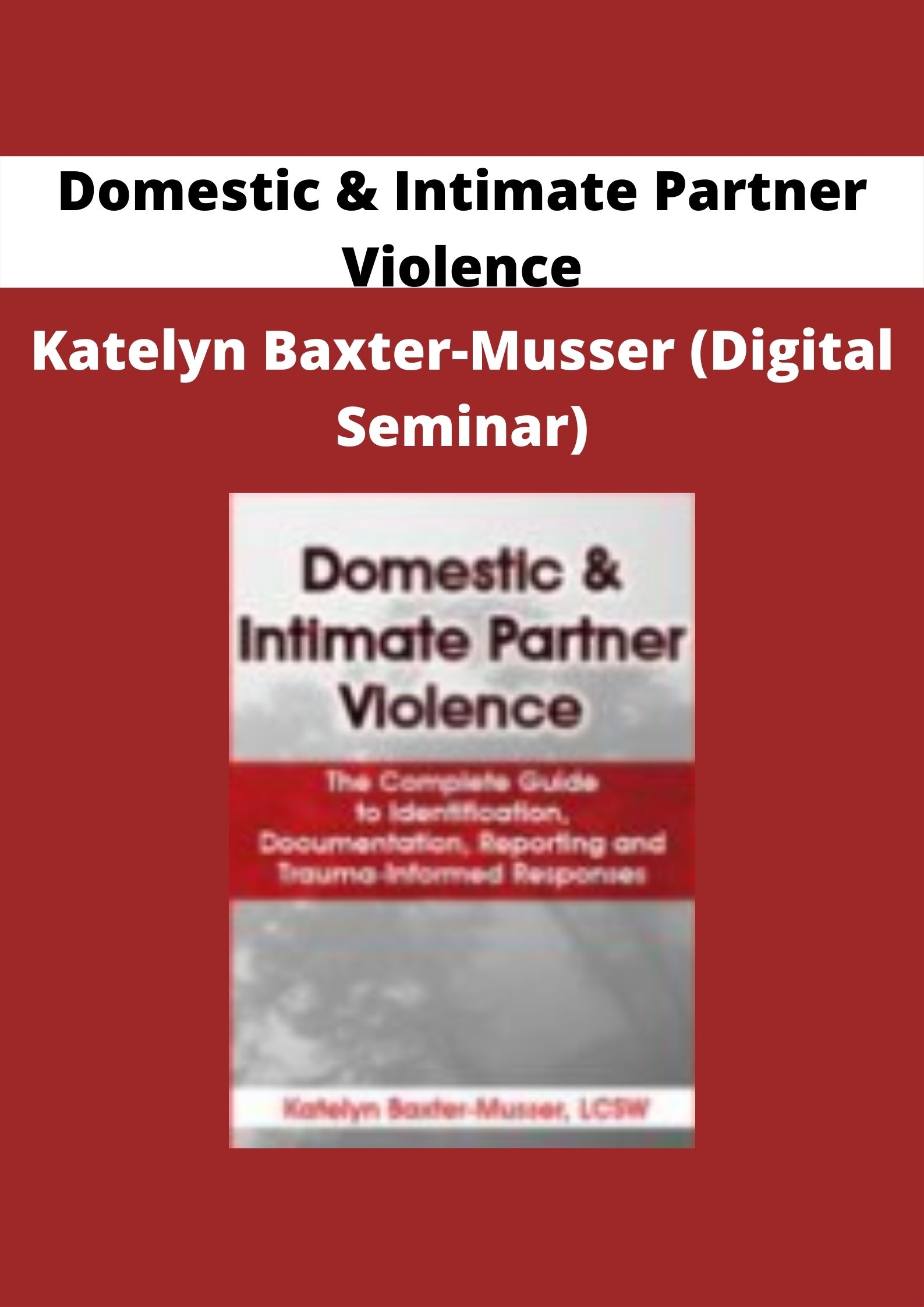
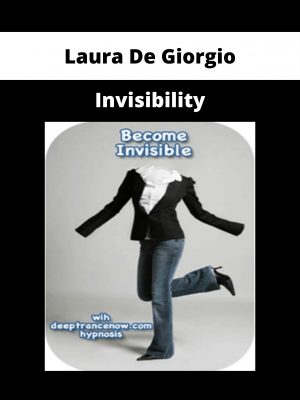
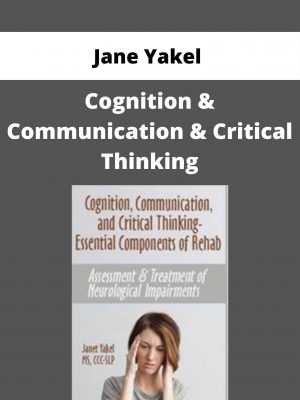


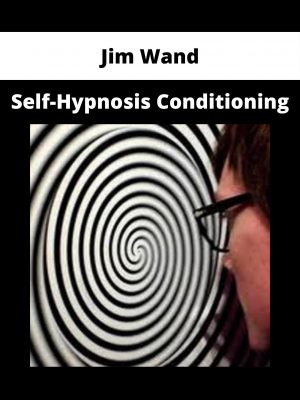
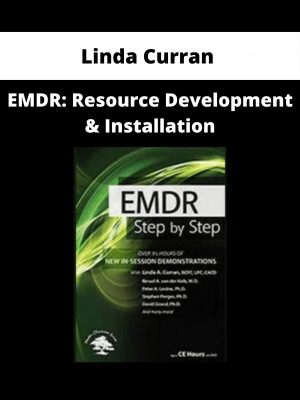


Cassandra Quitzon –
All good and easy TY | Domestic & Intimate Partner Violence – Katelyn Baxter-Musser (Digital Seminar)